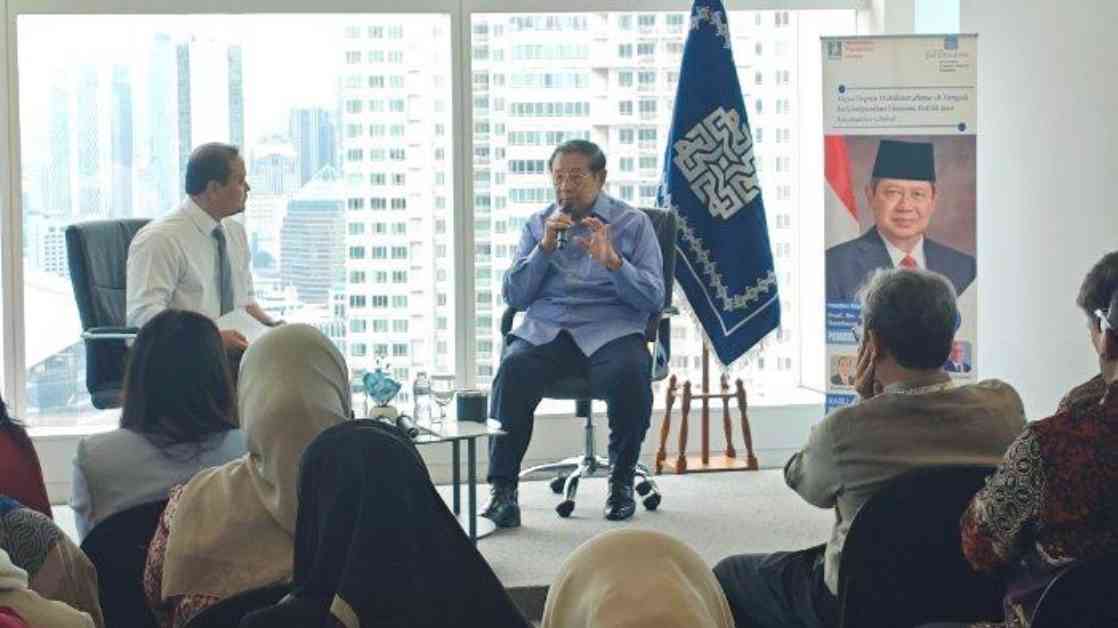Understanding the Minds of the People: Key Traits of Effective Leaders
In a recent discussion at Trinity Tower in Kuningan, Jakarta, former President Susilo Bambang Yudhoyono (SBY) emphasized the importance of leaders understanding the thoughts and feelings of their constituents. Speaking at a forum on the Future of Multilateralism Amid Global Economic-Political Uncertainty and Security, hosted by Paramadina University, SBY delved into the psychological and psychopolitical realms that shape voter behavior and leadership dynamics.
As the conversation unfolded, SBY pointed out the intricate interplay between traditional voters’ perspectives and the nuanced reasons behind their electoral choices. Acknowledging the diversity of viewpoints among voters who support different candidates, SBY underscored the need for leaders to grasp not only the rational aspects but also the emotional undercurrents that influence public sentiment.
Reflecting on historical contexts, SBY drew parallels between past eras of colonial darkness and contemporary geopolitical tensions involving Islamic nations’ perceptions of the West. Against this backdrop, SBY highlighted the imperative for leaders to empathize with the populace’s sentiments, transcending mere intellectual comprehension to connect with people on a deeper, more emotional level.
Transitioning from historical reflections to contemporary leadership paradigms, SBY juxtaposed the allure of strongman figures with the inherent risks of absolute power. Drawing on his wealth of experience and observations, SBY posited that irrespective of nationality or cultural background, people generally harbor reservations toward leaders who wield unchecked authority, embody dictatorial tendencies, or exhibit tyrannical behavior.
Within this nuanced discussion, SBY differentiated between strongman leadership characterized by resolute adherence to principles and the broader implications of such governance styles. While acknowledging that some individuals may gravitate toward strongman figures who exude confidence, competence, and problem-solving acumen, SBY underscored the delicate balance between firm leadership and autocratic tendencies.
As the dialogue unfolded, SBY’s insights underscored a critical juncture in the discourse on effective leadership, urging aspiring leaders to navigate the complexities of public sentiment, historical legacies, and contemporary challenges with a deft touch that blends empathy, pragmatism, and ethical stewardship.
In a world rife with political upheavals, economic uncertainties, and social transformations, the essence of leadership lies not merely in wielding power but in understanding, resonating with, and championing the aspirations of the people. The evolving landscape of global governance demands leaders who can balance strength with empathy, decisiveness with inclusivity, and vision with pragmatism—a delicate tightrope walk that separates statesmen from autocrats, and transformative leaders from mere figureheads. In this crucible of leadership, the ability to grasp the minds and hearts of the people emerges as a defining trait that transcends borders, cultures, and historical epochs.
As we navigate the complexities of a rapidly changing world, the wisdom shared by leaders like SBY serves as a compass, guiding us toward a future where leadership is not just about power but about empathy, connection, and shared purpose. In understanding the minds of the people, we unravel the tapestry of human aspirations, fears, and dreams that shape the trajectory of nations, societies, and the collective human experience.














